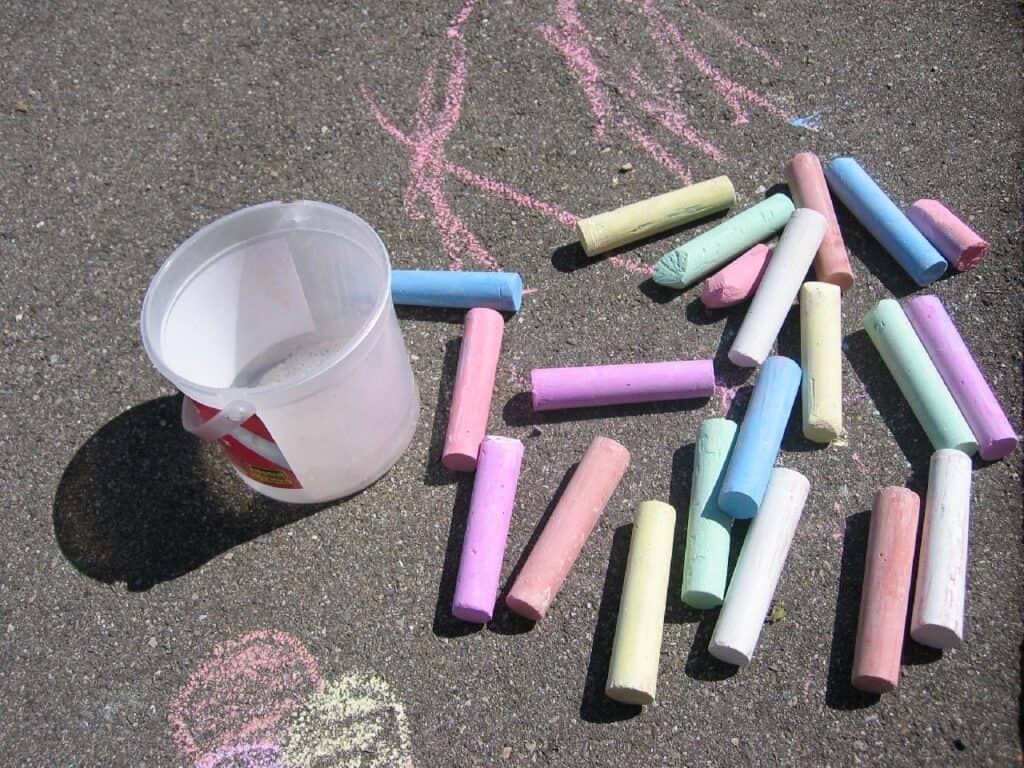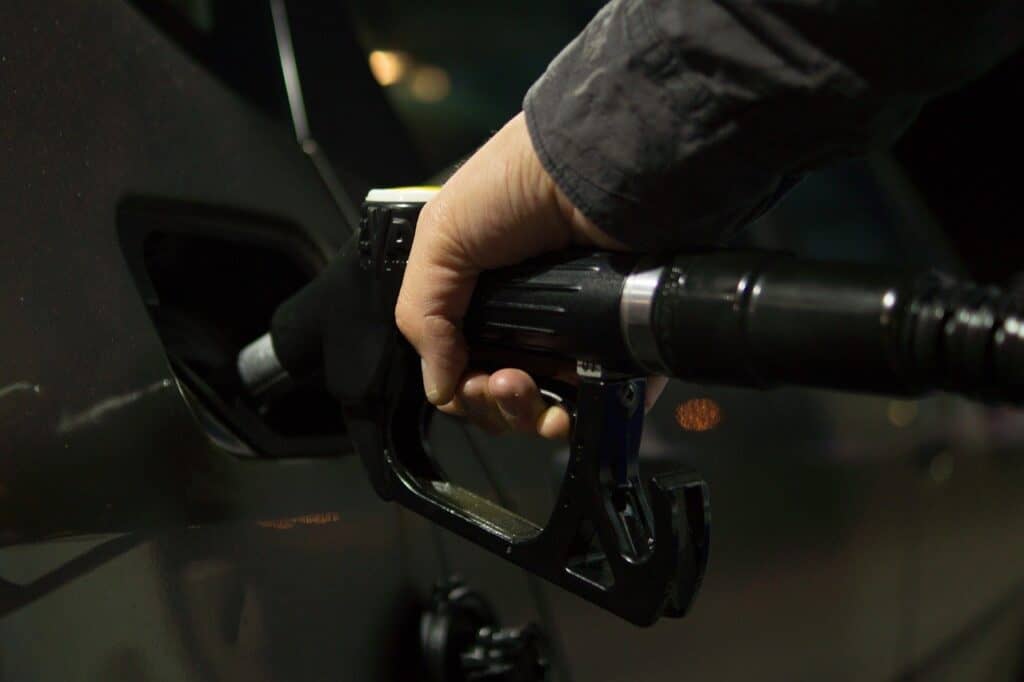Chalk’s a very useful substance. While it may have disappeared from the classroom with the advent of marker pens and wipe clean boards, it’s still used in a variety of applications. The pool player’s cue, for example, would be a much poorer tool without chalk. However, would it be better if the pool player kept their chalk use to a minimum? Is chalk a fire hazard and should we be using it at all?
Chalk can be flammable, but is not always. It can easily catch fire when in dust form, due to high surface area and high oxygen to fuel ratio. However, in block form, it is not flammable at all.
Let’s take a look a look at what chalk actually is, the different types, and the fire hazards they present. Here’s what you need to know about chalk and fire.
Your # 1 priority is keeping your family safe. As a firefighter, I recommend everyone has updated smoke detectors that don’t require battery changes, like these ones from Kidde, a fire extinguisher, like this one from Amerex, and a fire escape ladder if you have bedrooms above the first floor, I recommend this one from Hausse.
Also read: What Makes Something Flammable?
What Is Chalk?

Chalk is a naturally occurring mineral deposit or rock. It’s made from limestone and calcite and was created by the long-term compression of dead plankton miles under the sea.
It is a very common mineral in some parts of the world, in particular, in Western Europe and the “White Cliffs of Dover” in England are a famous example of chalk cliffs.
It is used for many different purposes. In industry, you’ll find chalk made into quicklime (a caustic agent), bricks, as well as builder’s putty.
On farms and in big agribusinesses chalk can be used to help raise the pH of acidic soil, it’s very safe to use and completely non-toxic.
It was once used in the classroom for “blackboard chalk” and is used in a variety of other circumstances for marking things.
One unusual use of chalk is as a fingerprint powder for crime scenes, though this is something of a rarity, today.
It is also used in some sports such as pool and snooker, tennis (for marking courts), cricket and more – however, it is rapidly being replaced as a marking agent by titanium dioxide which is easier to work with.
Also read: Is Baby Powder Flammable? It Depends…
What Is It Made From?
Formally, it’s known as calcium carbonate (that’s CaCO3 for any budding chemists out there). Chalk is soft, white, and porous in terms of its physical structure.
So chalk is made of Calcium (Ca), Carbon (C) and Oxygen (O).
It can easily be mined both above and underground wherever it is found and, indeed, some old chalk mines are now tourist exhibitions as the post-mining remains are quite beautiful.
Is It Flammable?
Generally speaking, chalk is not flammable. It requires a very high temperature and, ideally, a very high pressure to burn chalk and you won’t encounter these things under ordinary circumstances.
But when in dust/powder form, it behaves very differently. The dust allows for more oxygen and can cause chalk dust to ignite quite quickly and even explode in some circumstances. Many substances will behave like this and be much more flammable in dust form.
Also read: Is Playdough Flammable?
Combustible?
Yes, technically, chalk is combustible, but in solid form – it’s not going to catch fire easily.
As we’ve already said – you would need a high temperature and high pressure to persuade it to burn. The Calcium-Carbon-Oxygen bonds are very strong and thus they need a lot of energy input in order to break them and leave the elements, within chalk, free to burn.
But in dust form it can be much more combustible.
Also read: Is Dust Flammable? When To Worry…
Can It Explode?
And yet, oddly, chalk could be an explosive. This is not because we’ve been misleading you about how hard it is to burn – chalk is explosive under a particular set of circumstances. Namely, it must be in a fine dust form and in the air.
Nearly all fine dusts are potentially explosive. Why?
Because the surface area of the chalk is much larger than it is when the chalk is solid and it is all exposed to the air (and thus, a source of oxygen) and this means you don’t need much in the way of energy to persuade it to burn.
When it does burn, the reaction is exothermic, that is, it emits more heat. This heat then sparks the next bit of chalk dust and that sparks the next and so on… this is a chain reaction, and it happens incredibly quickly and produces an explosion.
To learn more about these dust explosions, watch this video (it doesn’t talk about chalk dust specifically, just the basic concepts):
Most people will never work with large quantities of chalk dust and it’s not something you’re likely to have to worry about at home, but if you do find yourself facing this situation – work in a well-ventilated area and make sure that there are no sources of naked flame or electrical sparks nearby.
What About Climbing Chalk?
Climber’s chalk is not chalk. In fact, it’s Magnesium Carbonate (that is MgCO3). It also requires large amounts of energy to break down the bonds in the climber’s chalk to get it to combust – and that means high temperatures and pressures, which you won’t find under normal circumstances.
We would note that you ought not to inhale chalk dust from either climber’s chalk or ordinary chalk as find dust particles can irritate the lungs.
Liquid Chalk?
Liquid chalk is a mixture of climber’s chalk, alcohol and water, and possibly resin. It may be more flammable due to the alcohol content. Typically, when using it the alcohol evaporates very quickly in the air and the dry end product is not flammable.
Climbers often prefer liquid chalk as it’s quick to apply and leaves a very even coat of dry chalk on their hands.
Sidewalk Chalk?
Sidewalk chalk is the same as regular calcium carbonate chalk and as such it has the same properties as ordinary chalk – so, no, sidewalk chalk is not flammable, unless in dust form.
Related Articles
Is Cornstarch Flammable? Will it Catch Fire?

